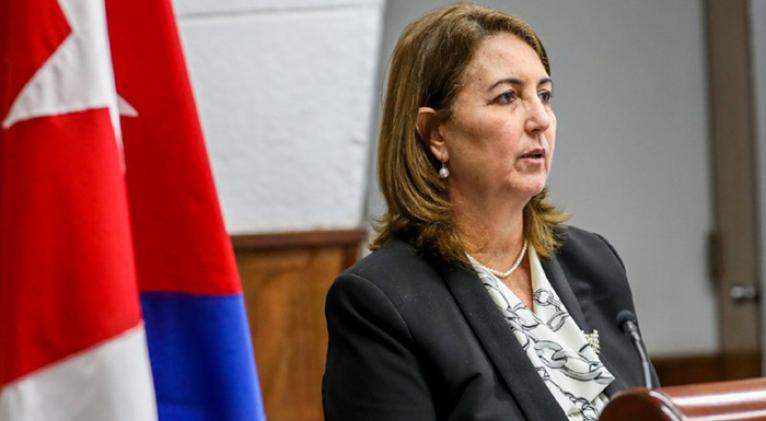Cuban biotechnology industry included 28 new products in 2024
especiales

The introduction of 28 new products, among which the Quimi-Vio vaccine stands out in the National Immunization Program, with more than 70,000 two-year-old children already vaccinated, was the main achievement of the Cuban biotechnology industry in 2024, said the annual assessment of the Biotechnology and Pharmaceutical Industry Business Group in Cuba (BioCubafarma).
Miguel Diaz-Canel, first secretary of the Communist Party of Cuba and president of the country, and Manuel Marrero Cruz, prime minister, led the meeting, which evaluated the Group's performance last year.
Although there were difficulties, 2024 was a year of progress, as all the companies maintained their operating capacity and more than 90 % of the 164 production lines were available, said Mayda Mauri Perez, president of BioCubafarma.
Mauri Perez highlighted the obtaining of 25 new health registrations in Cuba and pointed out that the Group strengthened its global presence and increased its visibility in international events; 59 patents were granted to different countries and 25 new health registrations were obtained abroad, she said.
Among these registrations, she mentioned Nimotuzumab, indicated for the treatment of pancreatic cancer and advanced head and neck tumors, in China, and the approval of the start of clinical studies of novel products in several territories, such as Heberprot-P, for patients with diabetic foot ulcers, in the United States.
Nine international research and development projects were initiated and several previously ongoing projects were completed, such as the successful completion of the technology transfer of the Hebernem biological product, with the trade name Aikexian in China, and its introduction as a biofertilizer in agricultural production in that country.
Mauri Perez referred to the creation of new companies in China, Russia, Germany, Belarus, Australia, exports to 42 countries, the signing of 15 international cooperation agreements and the receipt by the organization of 14 international donations.
The tightening of the U.S. economic, commercial and financial blockade and the unjust inclusion of Cuba on the list of countries sponsoring terrorism, added to the country's complex economic situation, had a negative impact on access to timely financing and to raw materials and inputs; other factors such as the lack of fuel, obsolete technology and the exodus of highly qualified professionals had an impact on productivity, the expert added.
In the conclusions of the meeting, the Cuban Prime Minister acknowledged the negative impact of the U.S. measures against Cuba, which often make it impossible to materialize projects and research, but the unity and commitment of the scientists made it possible to maintain the vitality of the industry and advance in the management model of the socialist state enterprise.
Marrero Cruz invited to look for alternatives to stabilize the production and delivery of medicines, supplies and reagents to the Cuban health system, to bet on the acquisition of more renewable energy sources for energy sovereignty and to expand to new markets and business opportunities to increase income.














Add new comment